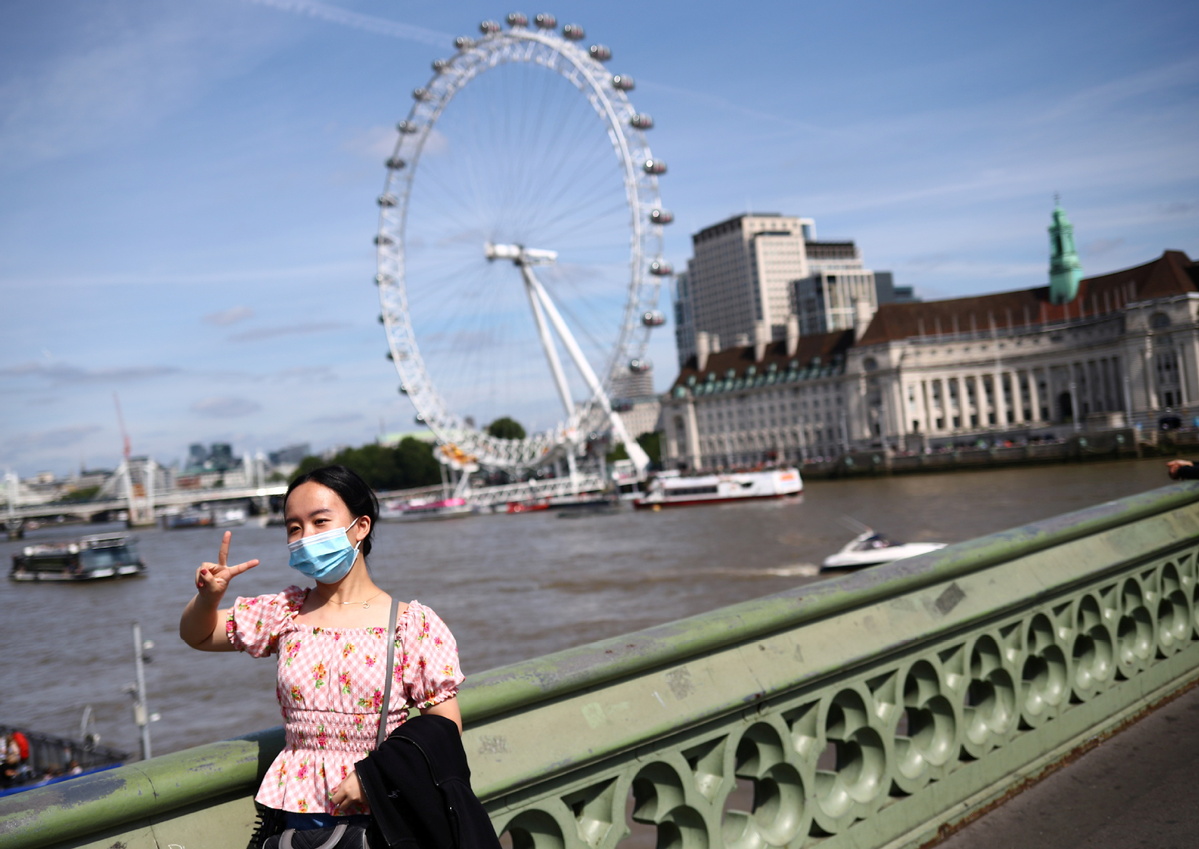Restrictions rock Britain's travel sector


Nation says it has no choice but to pull up the drawbridge as Omicron spreads
The heavily-mutated novel coronavirus variant Omicron, which is thought to be more transmissible than other strains and less responsive to vaccines, triggered United Kingdom travel restrictions on Saturday that rocked the sector.
The restrictions, which expand the nation's red list to 11 countries and that require all arrivals to have a pre-departure PCR test, were met with disappointment in the sector.
The BBC said the Business Travel Association said they were a "hammer blow" that will devastate livelihoods.
Airlines UK told The Guardian: "They've now changed their travel advice twice within a week. It's impossible for anyone to plan."
The Financial Times newspaper quoted Tim Alderslade, chief executive of Airlines UK, as saying: "It is premature to hit millions of passengers and the industry before we see the full data. We don't have the clinical evidence."
But, with at least 40 nations now reporting Omicron cases, London said it had no choice but to pull up the drawbridge.
The UK is hoping its beefed-up travel restrictions, along with a massive expansion of the booster-jab program, will limit the spread of the variant locally.
Sajid Javid, the nation's health secretary, said all eligible people should have a booster jab before meeting family and friends during the Christmas period.
"While our brilliant scientists learn more about the new Omicron variant, we need to do everything we can to strengthen our defenses; and vaccines are the best way to do that," Javid said.
Deputy Prime Minister Dominic Raab told the BBC the government's tweaking of its travel rules was an example of it taking "incremental steps" that avoid widespread disruption.
But The Financial Times said the government's "mixed messages" had created confusion about the Omicron variant, which has led many people and companies to decide for themselves how to behave. The paper said many Christmas parties have been canceled, even though the government has urged people to go ahead with them.
Industry trade group UKHospitality said festive bookings were already 30 percent down on the normal level before the emergence of the variant last week. It said 10 percent of those bookings have since been canceled.
The UK Health Security Agency said on Saturday it had identified an additional 26 cases of the variant, taking the total to 160.Scientists believe many more remain unidentified.
Mark Woolhouse, a member of the government's Scientific Pandemic Influenza Group on Modelling, said the latest government restrictions were introduced too late to have any meaningful impact.
He said on The Andrew Marr Show on Sunday: "I think it may be a case of shutting the stable door after the horse has bolted."
Another top British scientist said the Omicron variant looks like proof we are "closer to the start of the pandemic than the end".
Jeremy Farrar, director of the Wellcome Trust, wrote in The Observer newspaper that progress made so far on battling the virus was "being squandered" by a lack of political leadership that means much of the world is unvaccinated.
Farrar, who stepped down as a government scientific adviser last month, said current vaccines will probably protect people from serious illness as a result of an Omicron infection, but that may not be the case with the next variant.
"The longer this virus continues to spread in largely unvaccinated populations globally, the more likely it is that a variant that can overcome our vaccines and treatments will emerge," he wrote. "If that happens, we could be close to square one."
He said that means rich nations must act now to ensure the equitable distribution of vaccines, tests, and treatments.
Elsewhere in Europe, there were protests on the weekend against stricter virus restrictions.
In Austria, where the government has said it will make vaccinations mandatory, around 40,000 people protested in Vienna. In the Netherlands, several thousand demonstrated in Utrecht.































